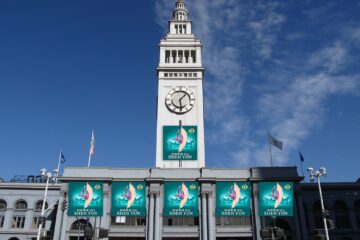Essential Worker Strikes Planned at Amazon, Instacart, Walmart for May Day
According to articles by Vice, Techcrunch, and Eater, workers at Amazon, Whole Foods, Instacart, Walmart, FedEx, Target, and Shipt say they will walk off the job on May 1. It is unclear how many workers will actually strike and whether business will actually be disrupted. We reached out to several grocery workers in the SF Bay Area, as well as our contacts in Bay Area Unions. None of them are striking or know workers who are. The planned May Day strikes are being reported mostly by The Intercept, who spoke to strike organizers in more than 6 states, mostly in the Midwest and East Coast.

May 1st has been recognized as International Workers Day since 1886. As May Day 2020 approaches during a global pandemic, workers deemed ‘essential’ are no longer just emergency, medical, and law enforcement. The food and retail industries have been putting their health on the line, and going to work everyday since the March and shelter in place ordinances began in various states.
While we the consumer, can order food delivery on our phones from gig workers, pickup groceries at our local store at will, and order whatever products we want delivered to us through Amazon, the working people who have to cook, drive, package, shelve, and deliver these essential products, have been out there exposed to the virus.
For this reason, ‘frontline workers’ have been disproportionately affected by COVID-19. Thousands of workers in meat packing plants across the country tested COVID postive as of April 28 (4,400 have tested positive with 18 reported worker deaths). This prompted the The Centers for Disease Control (CDC) and the Occupational Safety and Health Administration (OSHA) to issue new guidelines on April 26 for meatpacking and poultry workers and employees.
The largest grocery store worker union in America the UFCW announced that 30 of its members died from COVID-19 in mid April, and nearly 3,000 UFCW food and grocery workers have been directly impacted by COVID-19, meaning they got sick or had to stop working because of the pandemic. All of these numbers are expected to grow.

Meanwhile companies like Instacart have never been busier, Instacart doubled it’s workforce in a Month, and is now seeking 250,000 more workers. The large grocers who are hiring like crazy while seeing a windfall of profits, and historical sales figures. Whole Foods and Safeway did give their employees $2-3 an hour raises for working in the month of April, and have instituted a growing number of new safety protocols for their workers.
Now, workers around the country are reportedly organizing a general strike on May 1st. The Intercept spoke to 20 organizers from more than half a dozen states, reflecting the widespread nature of the strike. From Whole Foods workers in Boston to Instacart gig workers in Silicon Valley to Amazon warehouse organizers in Kentucky and Michigan, their stories and demands varied but together illustrated a pattern of corporate neglect toward workers now regarded as essential.
Workers at large retailers like Amazon have begun self-reporting illnesses among workers, some claim that their bosses refuse to reflect the true numbers of infections in workers. There are many reports of a series of work stoppages, sick-outs, and protests in recent weeks that will culminate on Friday, May 1 in a historic strike organized by frontline workers at some of the country’s largest corporations, it remains unclear how many actually will stop working.

Photo by: Xavier Minguella
It is an impossible situation. On one hand the large retailers and grocers are being asked to provide essential goods to the nation at a breathtaking pace, as millions of delivery requests flood in from consumers, these corporations are asked to deliver while at the same time protecting their workforce from an invisible killer that is passed by people in close proximity to one another. Retail is a close proximity business.
It is impossible to protect workers 100% from COVID, and ask them to do their jobs at the same time. Without widespread comprehensive COVID testing, employers are left with asking their workforce to wear face coverings, and self reporting illnesses before their shifts start.









